
In its annual Medicare Shared Savings Program (MSSP) report, CMS said the number of accountable care organizations joining increased, but a trade group said the results should have been better.


In its annual Medicare Shared Savings Program (MSSP) report, CMS said the number of accountable care organizations joining increased, but a trade group said the results should have been better.

A study found 4 factors may correlate with increased risk of long-term COVID-19; Rhode Island joins opioid settlement against McKesson, AmerisourceBergen, and Cardinal Health; the Environmental Protection Agency announced it will station mobile equipment in Louisiana to measure air pollution.

The Biden administration will distribute 400 million nonsurgical N95 masks; a study aims to develop a questionnaire to enable gay and bisexual men to donate blood; counterfeit versions of Gilead HIV treatments were discovered in 9 states.

On this episode of Managed Care Cast, Mark Miller, PhD, the executive vice president of health care at Arnold Ventures, outlines what Americans can expect from the newly enacted No Surprises Act.

New data show that Medicaid enrollees with diabetes in Colorado have greater access to new medications and incur less associated costs compared with patients with Marketplace plans.

Cloth masks are not as effective at curbing the spread of COVID-19 as surgical masks; Martin Shkreli is banned from the pharmaceutical industry; as infections increase, more COVID-19 variants are likely.

Senate panel votes to advance Robert Califf, MD, as the new head of the FDA; rising global temperatures spell increased health challenges; Omicron cases may be peaking in some Northeast cities.

The deadline to enroll in health insurance available through the Affordable Care Act on the federal exchange is Saturday, January 15.

In a National Coverage Determination decision memo released Tuesday, CMS said it will gather public comment for 30 days about its plan to limit coverage for Alzheimer disease (AD) biologics that target plaque buildup in the brain to patients enrolled in certain clinical trials.

On this episode of Managed Care Cast, we interview the lead author of a paper in the January issue of Health Affairs about what physicians know and don't know regarding their responsibilities to accommodate patients with disabilities when they come in for an office visit.
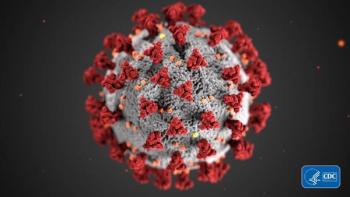
CDC officials clarified the agency's new isolation recommendations for individuals infected with COVID-19 and provided updates on its efforts to reduce pediatric cases among those too young to receive vaccines.

CMS proposed rulemaking Thursday that would pass pharmaceutical price concessions to beneficiaries in Medicare Part D plans and make the medical loss ratio in Medicare Advantage plans more robust.

The Biden administration doubled its order of Pfizer’s COVID-19 antiviral drug; California is now the first state to require health insurance plans to cover at-home STI tests; the Supreme Court will hear in-person arguments Friday to decide whether to block federal vaccine mandates.
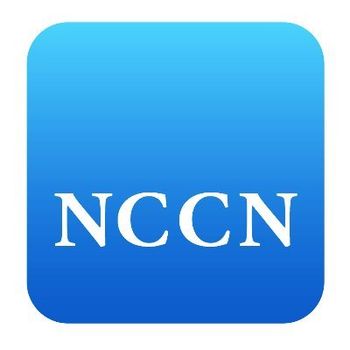
The update recommends that patients who receive CAR T-cell therapy wait 3 months before getting a COVID-19 vaccine.

At least 8 biosimilars were approved in Canada over the past 12 months, as policy makers made a strong push for biosimilar acceptance, which led to a change in prescribing patterns.
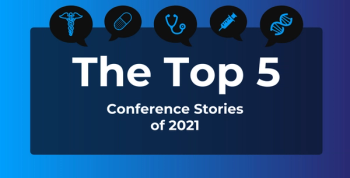
In a year that saw conferences return to in-person venues, the most popular conference coverage on AJMC.com included articles and videos from meetings on oncology, cardiology, dermatology, and more.
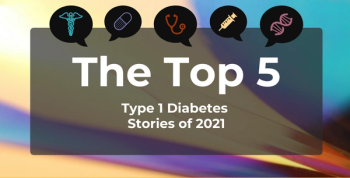
The most popular type 1 diabetes articles published in 2021 included new research on screening and updated coverage policy.
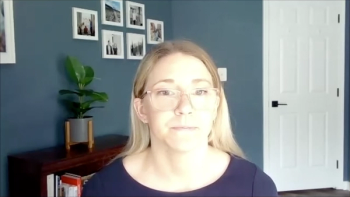
Megan Olsen, MPH, principal at Avalere, discusses the role that value assessments are expected to play in the future pricing of gene and cell therapies.

An analysis uncovered racial, ethnic, and socioeconomic inequities regarding access to glucagon-like peptide-1 receptor agonists among US patients with diabetes.

With legalization of cannabis across much of the United States and all of Canada, Don Sin, MD, FRCP, MPH, a professor of respiratory medicine at the University of British Columbia and head of the Centre of Heart Lung Innovation, St. Paul’s Hospital, has concerns about the effect of wider cannabis usage on chronic obstructive pulmonary disease (COPD) in future decades.
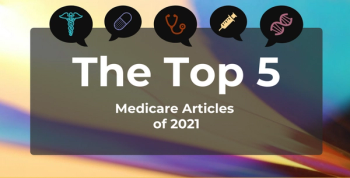
This year’s most-read articles on Medicare covered topics including accountable care organizations, value-based payment, and star ratings.

Although 2021 closes with a plentiful supply of COVID-19 vaccines and boosters, Americans continue to face challenges with the widespread Omicron variant and new testing hurdles.

COVID-19 at-home test kits are in short supply; 2021 is on track to surpass 2020's death toll; hospitals report patient surges.

In an interview conducted before the highly transmissible Omicron coronavirus variant began driving another wave of infections, Peter Hotez, MD, PhD, FASTMH, discussed the struggle public health officials and scientists have in fighting false beliefs about vaccinations.

The editors of The American Journal of Managed Care® and The American Journal of Accountable Care® reflect on the past year and discuss the themes and topics they expect to see in 2022.

259 Prospect Plains Rd, Bldg H
Cranbury, NJ 08512
© 2025 MJH Life Sciences®
All rights reserved.
